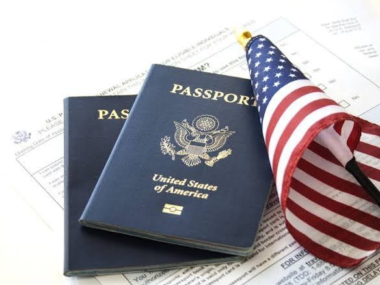Dreaming of studying abroad can be exhilarating, especially when the destination is a country as beautiful and academically prestigious as New Zealand. However, one major challenge many international students face is securing a sponsor for their study visa in New Zealand. A sponsor plays a crucial role in proving to immigration authorities that the student has adequate financial support during their stay. In this comprehensive guide, we’ll explore the easiest ways to find a sponsor, the types of sponsorships available, and actionable steps to increase your chances of success.
Why You Need a Sponsor for a Study Visa in New Zealand
To obtain a study visa in New Zealand, international students must show that they have sufficient funds to cover tuition, living expenses, and other costs. Immigration New Zealand requires proof of financial stability to ensure that students can focus on their studies without becoming financially burdened.
What Does a Sponsor Do?
A sponsor can be an individual or organization who agrees to financially support your studies and living expenses in New Zealand. This includes:
- Paying tuition fees
- Covering accommodation and daily living costs
- Ensuring access to emergency funds if needed
Having a reliable sponsor not only increases your visa approval chances but also allows you to concentrate on your academic journey.
Types of Sponsors for a Study Visa in New Zealand
Before you start your search, it’s important to understand the different types of sponsorships available:
1. Family Sponsorship
Immediate family members—such as parents, siblings, or close relatives—can act as sponsors. They must provide financial documents proving their capability to support you throughout your stay.
2. Educational Institution Sponsorship
Some New Zealand universities and colleges offer partial or full scholarships that also act as sponsorship. These awards often cover tuition fees, living allowances, and even travel costs.
3. Private or Corporate Sponsorship
Businesses or individuals with a personal or professional interest in your academic journey may choose to sponsor your education. This can include employers, religious organizations, or community groups.
4. Government or NGO Sponsorship
Government-funded programs and non-governmental organizations (NGOs) sometimes sponsor students from developing countries. These programs usually have specific eligibility criteria based on academic merit and financial need.
Understanding which type of sponsorship suits your situation will help you focus your search and increase your chances of success.
Easy Ways to Find a Sponsor for Your Study Visa in New Zealand
Now that you know who can sponsor you, here are some of the easiest and most effective ways to find one:
1. Reach Out to Family and Close Connections
Start by discussing your study plans with family members or relatives who are financially stable. Explain your education goals, share the expected costs, and present a clear financial plan. Family members often trust your intentions and are more willing to help.
2. Apply for Scholarships with Sponsorship Benefits
Many New Zealand institutions offer scholarships to international students. Some popular ones include:
- University of Auckland International Student Excellence Scholarship
- Victoria University of Wellington Global Alumni Graduate Fee Waiver
- AUT International Excellence Scholarships
- New Zealand Government Scholarships (MFAT)
These scholarships often act as full or partial sponsorship, fulfilling immigration requirements for a study visa in New Zealand.
3. Leverage Social Media and Professional Networks
Use platforms like LinkedIn, Facebook groups, and education forums to connect with alumni, university representatives, and potential sponsors. Look for:
- Alumni from your home country who studied in New Zealand
- International student support groups
- Educational webinars hosted by New Zealand institutions
Networking can lead to introductions, advice, and even sponsorship opportunities from individuals or companies interested in supporting education.
4. Contact Community and Religious Organizations
Some religious groups and community organizations have programs designed to support education for members. Reach out to churches, mosques, temples, or local NGOs that may offer educational sponsorships.
5. Approach Employers or Local Businesses
If you’ve worked or interned with an organization, consider asking them for sponsorship. Some companies may invest in your education with a commitment that you return to work with them after graduation. Draft a sponsorship proposal highlighting:
- How the education benefits both you and the sponsor
- A clear repayment or work-back agreement
- Your career goals and academic plans
6. Consult with Educational Agents
Reputable education agents often have access to partner universities and scholarship programs that include sponsorship. Choose agents with New Zealand study visa experience and a strong track record.
Documents Required from a Sponsor for a Study Visa in New Zealand
Once a sponsor is identified, they must provide the following documents to support your visa application:
- Sponsorship Letter detailing their commitment to support your education
- Bank Statements showing sufficient funds (at least NZD $20,000 per year of study)
- Proof of Income such as payslips, tax returns, or business documents
- Identification Documents including passport copies or national IDs
- Relationship Proof if the sponsor is a family member
Immigration authorities will evaluate these documents for authenticity and adequacy before approving the visa.
Tips to Increase Your Chances of Getting Sponsored
Finding a sponsor can be competitive, especially if you are relying on third-party or institutional support. Here are some tips to improve your chances:
1. Be Transparent and Professional
When approaching potential sponsors, present your academic plan, career goals, and budget in a clear, professional format. Treat it like a job application.
2. Showcase Academic Excellence
Maintain a strong academic record. Good grades increase your credibility and appeal to institutional and private sponsors.
3. Highlight Your Commitment
Demonstrate your dedication to completing your studies and contributing back—whether to your community, sponsor, or home country.
4. Prepare a Sponsorship Proposal
A well-crafted sponsorship proposal can set you apart. Include:
- Introduction and purpose
- Education and career goals
- Detailed budget breakdown
- How the sponsor’s support will be used
- Contact information and next steps
5. Start Early
Don’t wait until the last minute. Begin your sponsorship search at least 6–12 months before your intended course start date.
Conclusion
Securing a sponsor for your study visa in New Zealand doesn’t have to be overwhelming. With the right strategy, clear communication, and a proactive mindset, you can find the financial support needed to unlock your academic dreams. Whether it’s through family, scholarships, community organizations, or employers, opportunities for sponsorship are out there—you just need to know where to look. Take the first step today, and open the door to world-class education in New Zealand.



